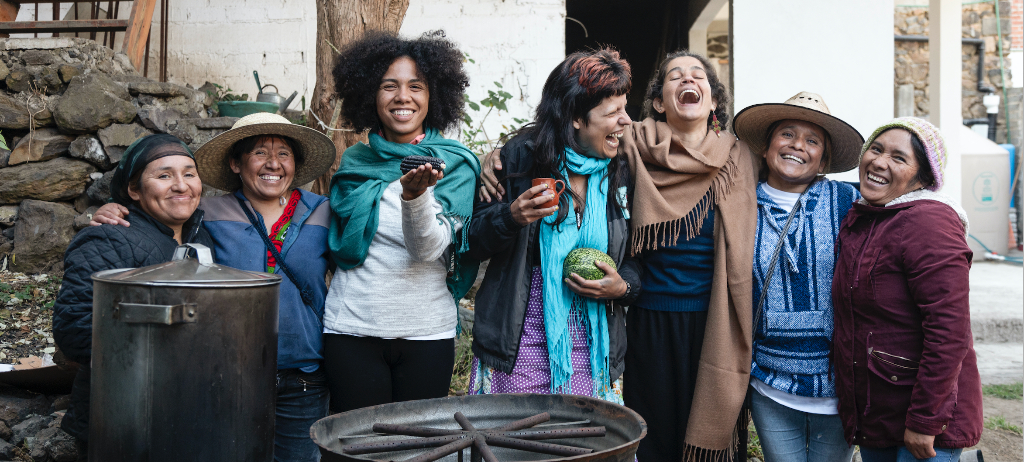End hunger, achieve food security and improved nutrition, and promote sustainable agriculture.
Hunger is the leading cause of death in the world. Our planet has provided us with tremendous resources, but unequal access and inefficient handling leaves millions of people malnourished. If we promote sustainable agriculture with modern technologies and fair distribution systems, we can sustain the whole world’s population and make sure that nobody will ever suffer from hunger again.


The Visualizing Foodways Field School
Pictured here: Brazilian students Nane Vieitas and Thais Chilinque and Hemispheric Encounters postdoctoral fellow Juma Pariri of the Indigenous women's collective Mujeres de la Tierra participate in a workshop led by the community kitchen project as part of the Visualizing Foodways Field School.
In February 2023, ten graduate students and postdoctoral fellows from across the Americas were invited to participate in the Visualizing Foodways Field School in Mexico City. This project grew out of a seven-year Social Sciences and Humanities Research Council partnership grant entitled Hemispheric Encounters, which was awarded to Laura Levin, associate professor in the School of Arts, Media, Performance and Design (AMPD). This was a week-long exploration of ways that artists can partner with activists to further promote food justice and sustainable food systems. Students, professors and other artists participated in site visits, meals, workshops, lectures, performances and talks exploring how the arts can help achieve food security, sovereignty and justice.
Facts
66
publications relevant
to SDG 2

(2020-2022)

Home to the Centre for Bee Ecology, Evolution and Conservation

30+
programs relevant or related to SDG 2

52%
of publications co-authored with international institutions




















